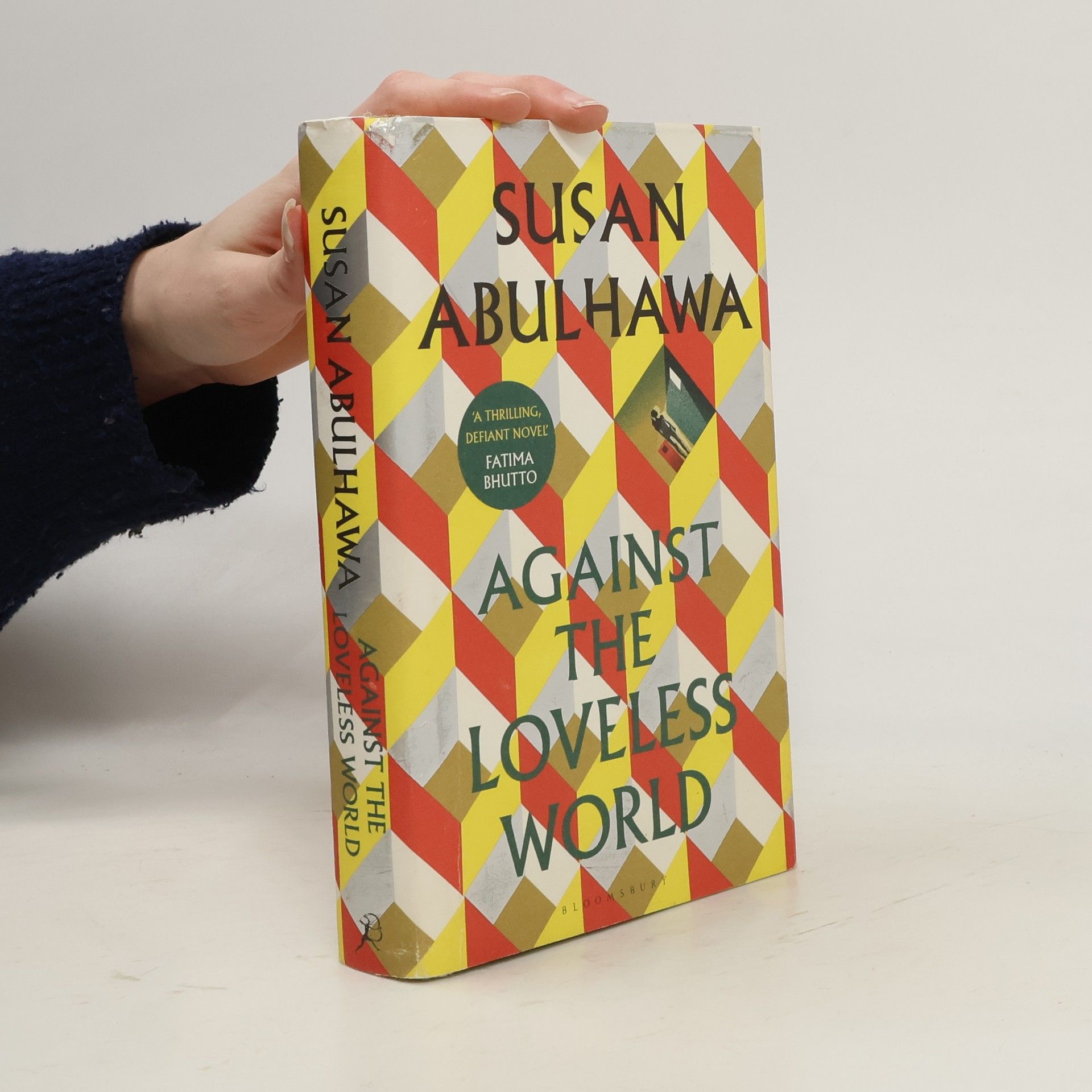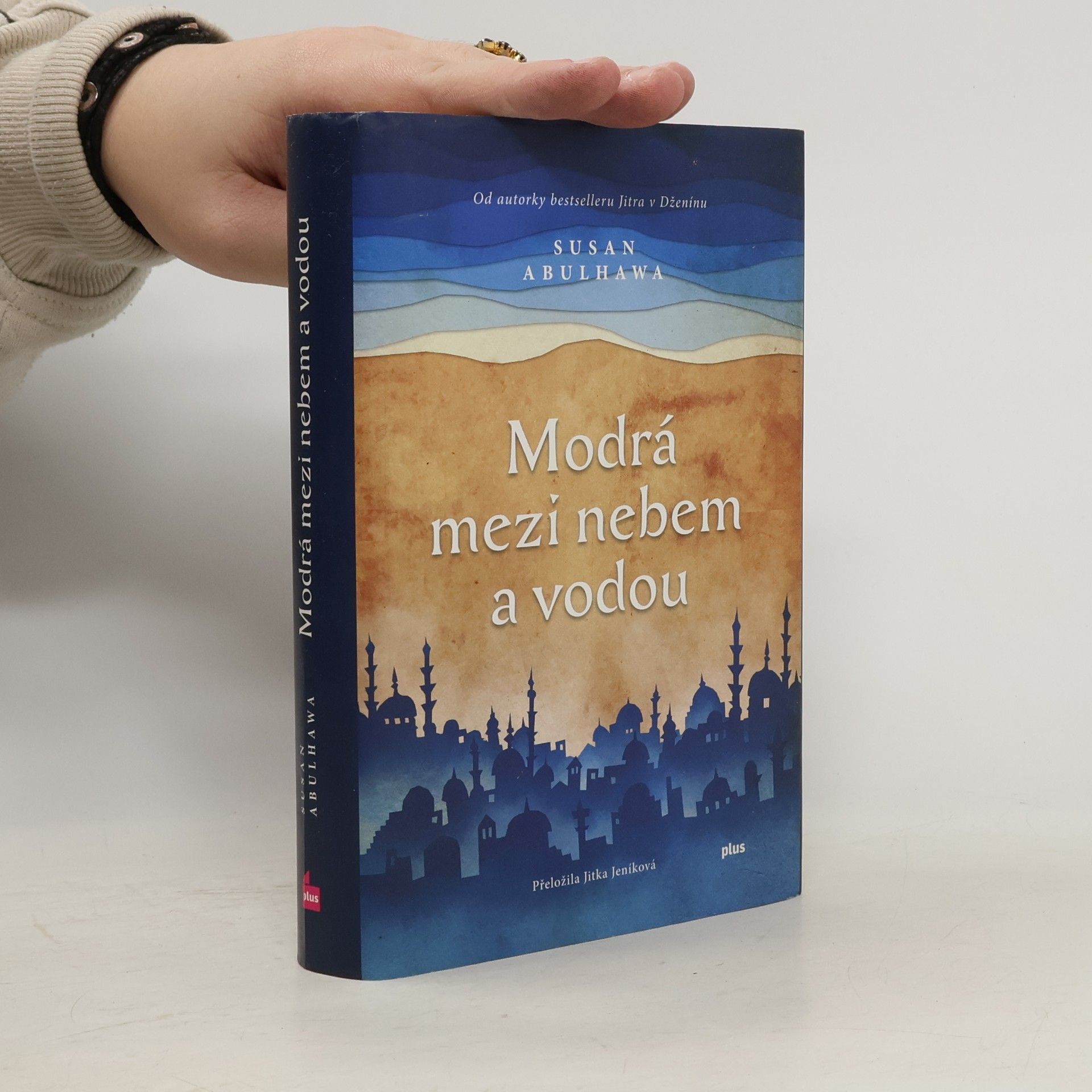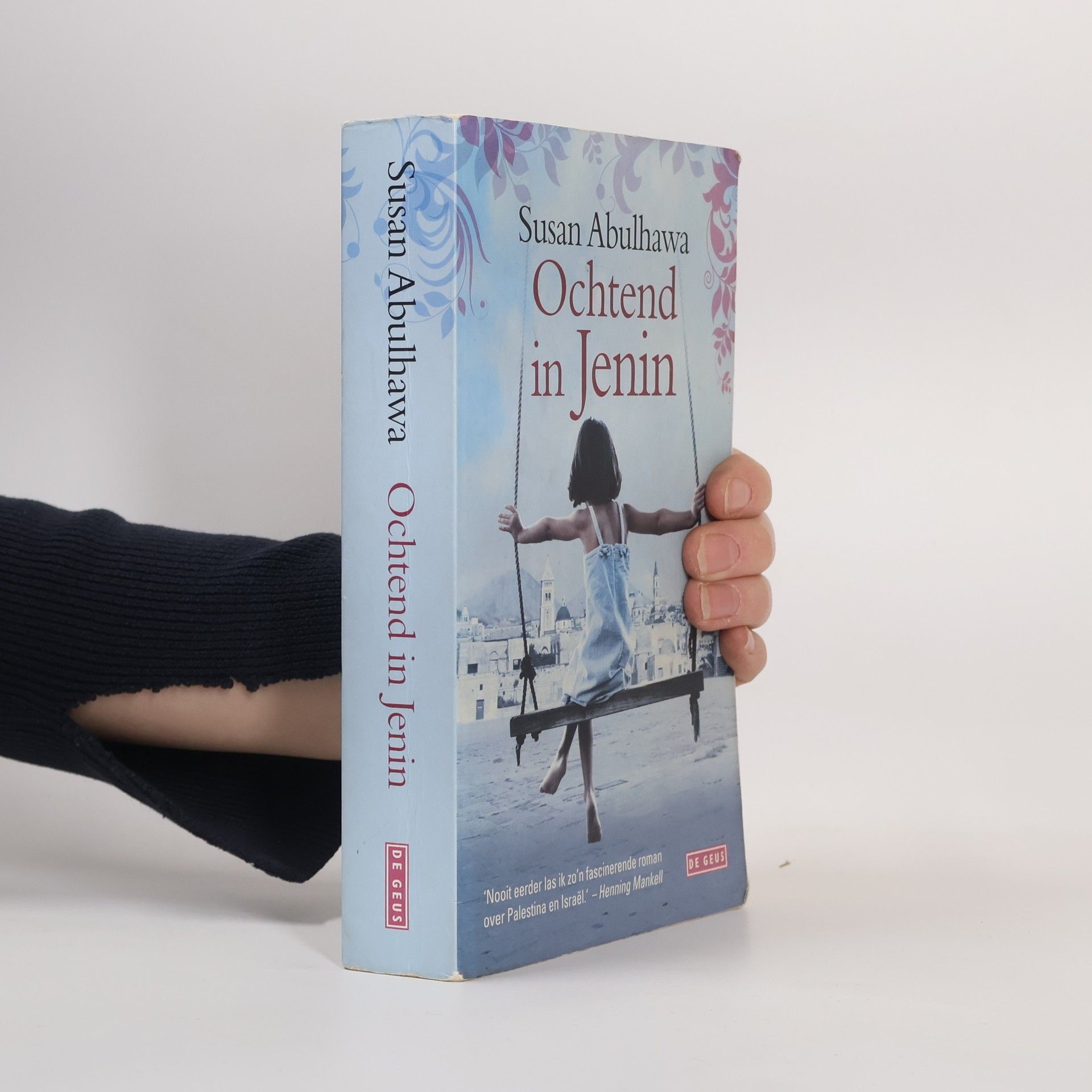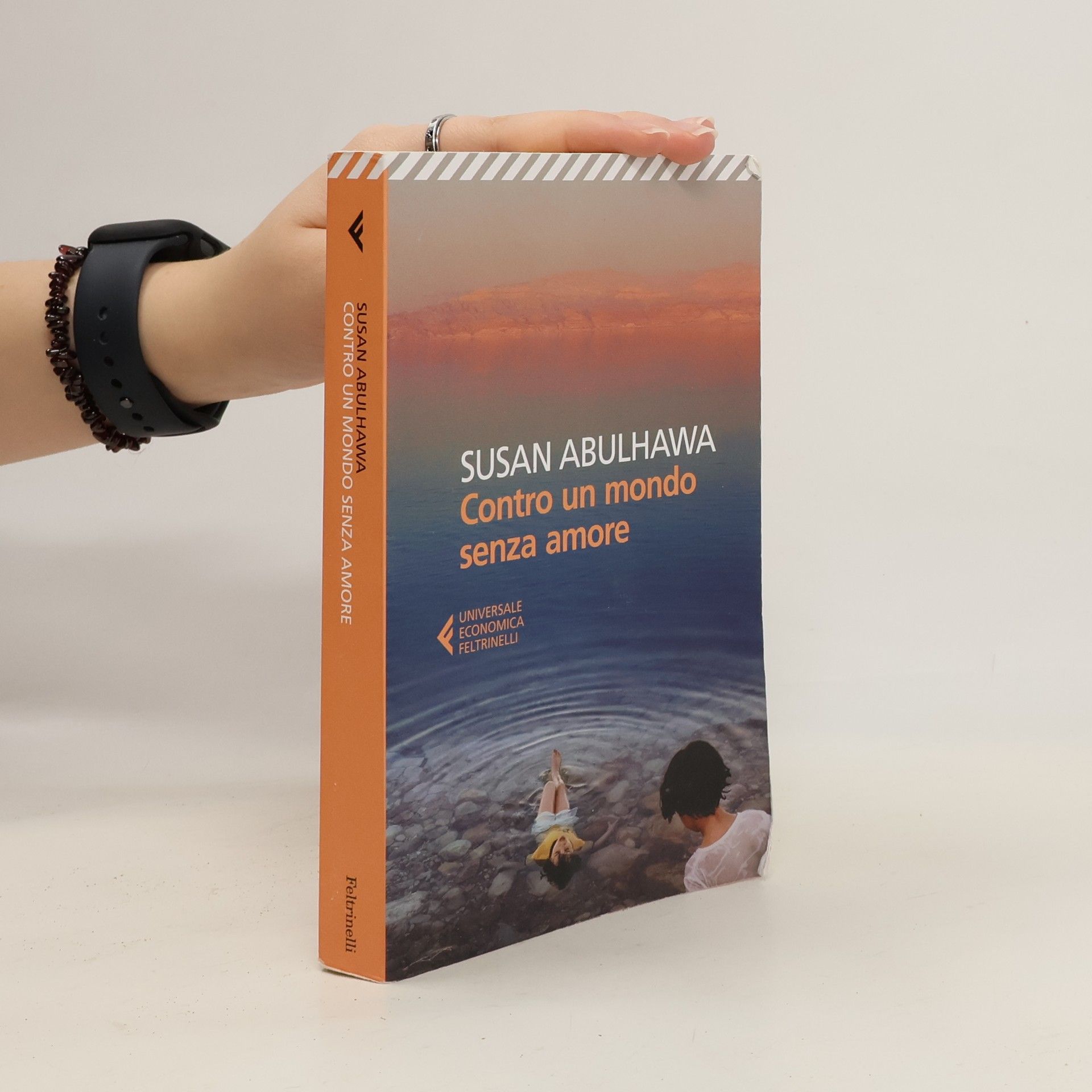Palestinská rodina Abuldžájových žila po generace v malebné vesničce a živobytí jim zajišťovaly olivové háje. Po vzniku státu Izrael v roce 1948 však ztratí svou půdu i domov a dostanou se do utečeneckého tábora v Jeninu. Návrat na původní území se čím dál více ukazuje jako nemožný… Jitra v Dženínu jsou poutavou ságou o trpkém osudu čtyř generací jedné palestinské rodiny během více jak šedesát let trvajícího izraelsko-palestinského konfliktu.
Susan Abulhawa Knihy
Susan Abulhawa píše silné a dojemné příběhy o životě Palestinců, o jejich bolesti, ale i o jejich naději a vytrvalosti. Její romány jsou prodchnuty hlubokou empatií a ostrou sociální kritikou. Abulhawa svým jedinečným hlasem přináší na světovou literární scénu příběhy, které jsou často opomíjeny. Její díla jsou důležitým svědectvím o lidskosti tváří v tvář nespravedlnosti.







Modrá mezi nebem a vodou
- 312 stránek
- 11 hodin čtení
Píše se rok 1947 a v Beit Darasu, palestinské vesnici obklopené olivovými háji, žije rodina Barakových. Nejstarší dcera Nazmíja pečuje o svou ovdovělou matku, která často trpí halucinacemi. Nazmíjin mladší bratr Mamdúh se stará o místní včelstvo a nejmladší Marjam, jež má každé oko jinak barevné, tráví dny povídáním s imaginárními přáteli a psaním. Když se u hranic městečka shromáždí izraelské vojenské jednotky, nikdo nemá ponětí, jaké násilí vypukne. Brzy je vesnice zničena a rodina se musí vydat na cestu do Gazy, která je podrobí nejedné zkoušce. O šedesát let později se Mamdúhova vnučka Núr žijící v USA zamiluje do ženatého lékaře a následuje ho do Gazy. Zde se setkává s Alwán, matkou Chálida. Chálid je doslova uvězněný ve vlastním těle a nedokáže se probudit ze svého hlubokého snění. Právě díky tomuto seznámení Núr zjistí, že rodinné vazby dokážou překonat veškeré překážky: dokonce i smrt. Modrá mezi nebem a vodou je příběh o silných, svérázných ženách, o vzdálenostech, odloučení a zlomených srdcích; o nových začátcích, vytrvalosti a lásce.
Mornings in Jenin. Während die Welt schlief, englische Ausgabe
- 352 stránek
- 13 hodin čtení
Against the Loveless World
- 384 stránek
- 14 hodin čtení
'A thrilling, defiant novel' FATIMA BHUTTO'A masterpiece' MARC LAMONT HILL'Wonderful ... Shines a ray of hope into some very dark places' MICHAEL PALIN'A fearless work of imagination' AHDAF SOUEIFWinner of the Palestine Book AwardNahr has been confined to the Cube: nine square metres of glossy grey cinderblock, devoid of time, its patterns of light and dark nothing to do with day and night. Journalists visit her, but get nowhere; because Nahr is not going to share her story with them. The world outside calls Nahr a terrorist, and a whore; some might call her a revolutionary, or a hero. But the truth is, Nahr has always been many things, and had many names. She was a girl who learned, early and painfully, that when you are a second class citizen love is a kind of desperation; she learned, above all else, to survive. She was a girl who went to Palestine in the wrong shoes, and without looking for it found what she had always lacked in the basement of a battered beauty parlour: purpose, politics, friends. She found a dark-eyed man called Bilal, who taught her to resist; who tried to save her when it was already too late. Nahr sits in the Cube, and tells her story to Bilal. Bilal, who isn't there; Bilal, who may not even be alive, but who is her only reason to get out.
Die Palästinenserin Nahr wird im Exil in Kuwait geboren. Sie wächst zu einer eigenwilligen, stolzen Frau heran, die den Tanz als Akt der Freiheit empfindet. Die Grenzen dieser Freiheit erlebt sie, als sie nach einer gescheiterten Ehe in einem Bordell arbeiten muss. Doch die bitteren Lektionen machen sie stärker. Selbstbewusst reist Nahr nach Palästina, wo sie Bilal kennenlernt. Durch ihn entdeckt sie das Land ihrer Familie und erfährt zum ersten Mal tiefe Liebe. Bilal hat sich der Befreiung seines Volkes verschrieben, und Nahr schließt sich ihm an. Eine Entscheidung, die ihr zum Verhängnis wird ... Dieser Roman erschien in leicht veränderter Fassung zuvor als Hardcover unter dem Titel »Nahrs letzter Tanz«.
Nahr, eine Palästinenserin, wird im Exil in Kuwait geboren und wächst zu einer starken Frau heran, die den Tanz als Ausdruck ihrer Freiheit sieht. Nach einer gescheiterten Ehe landet sie in einem Bordell, was sie prägt und stärkt. Ihre Reise nach Palästina führt sie zu Bilal, der ihr die Liebe und das Land ihrer Vorfahren näherbringt. Doch als sie sich Bilals Mission zur Befreiung seines Volkes anschließt, steht sie vor folgenschweren Entscheidungen, die ihr Leben nachhaltig beeinflussen.
Ochtend in Jenin / druk 1
- 415 stránek
- 15 hodin čtení
In deze roman vertelt Abulhawa het verhaal van de Palestijnse vluchtelingen die in 1948, na de stichting van de staat Israel, uit hun land verbannen werden. De familie Abulheja wordt gedwongen het dorp Ein Hod te verlaten en naar een vluchtelingenkamp in Jenin te gaan. In de chaotische vlucht raakt de jonge Isma'iel vermist. Hij wordt meegenomen door een Israelische soldaat. Gedreven door een alomvattende haat jegens de bezetters kiest Isma'iels tweelingbroer Joessoef de radicale kant van de PLO. Door de ogen van Amaal, hun jonge zusje, maken we drie decennia van geweld en oorlog mee.



